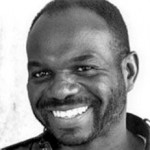Legendary actress Angela Lansbury, perhaps best known for her TV character Jessica Fletcher from TV’s Murder, She Wrote, died October 11, 2022. As tributes and obituaries recounted her decades-spanning career in film, television and Broadway, many highlighted an aspect of her eclectic life that fans today may not be aware of: Lansbury was a pioneering and vocal HIV and AIDS advocate.
“During the worst years of the AIDS crisis, Angela Lansbury was a staple at AIDS benefits, helping raise millions of dollars to fund AIDS research & patient care,” tweeted LGBTQ historian Eric Gonzaba in a post that included a newspaper clipping about Lansbury appearing in an Aid for AIDS holiday card.
During the worst years of the AIDS crisis, Angela Lansbury was a staple at AIDS benefits, helping raise millions of dollars to fund AIDS research & patient care. “This illness is robbing us of our friends and our futures. This disease knows no discrimination.” https://t.co/6jUwswZ2eT pic.twitter.com/rMMaoIEG35
— Eric Gonzaba (@EGonzaba) October 11, 2022
In an article titled “Let’s Not Forget What Angela Lansbury Did During the Worst Years of the AIDS Epidemic,” Queerty.com rounds up several other posts and comments about the actress’s HIV advocacy:
A thing you should know:
— Rebecca Makkai (@rebeccamakkai) October 11, 2022
In September, 1987, Angela Lansbury headlined a show that packed the Chicago Theater with 2,400 people to raise money for AIDS research. It was the first major AIDS benefit in Chicago, and it raised $1 million. ???? pic.twitter.com/lpKHNlGbsu
Lansbury’s support for HIV and AIDS efforts was so well-known that in November 1996, Broadway hosted a fundraising event titled Angela Lansbury—A Celebration. As Playbill reported at the time, the event “honored both Ms. Lansbury’s remarkable acting career and her tireless efforts against AIDS, raising over one-million dollars for the American Foundation for AIDS Research (amfAR) and Broadway Cares/Equity Fights AIDS.” The evening also included appearances by luminaries of the Great White Way, such as Stephen Sondheim, Jennifer Holliday, Nell Carter and Bea Arthur, all of whom attested to her incredible HIV advocacy.
That evening occurred as the AIDS epidemic was reaching a milestone. That year, 1996, was when lifesaving combination antiretroviral therapy first became available, effectively turning an AIDS diagnosis from a death sentence to a chronic condition.
That year, Lansbury would have been at the height of her celebrity. She had become a household name thanks to Murder, She Wrote, which ran from 1984 to 1996. And she voiced Mrs. Potts in Disney’s 1991 hit Beauty and the Beast.
View this post on Instagram
Lansbury, who was born in England, debuted at age 19 in the movie Gaslight in 1944, which earned her an Academy Award nomination. She received another one for 1946’s The Picture of Dorian Gray. She didn’t win either award, but in a 2010 video interview with The New York Times, filmed with the understanding that it would be shown only after her death, Lansbury said she considered it a blessing not to have won an Oscar so early in her career. (You can watch the video at the top of this article or on YouTube.)
In the Times interview, Lansbury also recounts that her first marriage, to Richard Cromwell, was short-lived because he turned out to be a gay man, a fact that she had not been aware of at the time. She later remarried and had children.
The iconic actress also experienced numerous successes on Broadway—for example, she originated the role of Mrs. Lovett in Sweeney Todd in 1979, for which she won one of her several Tony Awards. She also starred in Mame in 1966 and, most recently, in Blithe Spirit in 2009.
Lansbury’s final film appearance will take place later this year. She and Sweeney Todd scribe Sondheim, who died last November, recorded a brief scene in summer 2021 for the upcoming Knives Out sequel, Queerty reports. Look for Glass Onion: A Knives Out Mystery to play in theaters and stream on Netflix around Thanksgiving.
At the 1996 Broadway tribute to her, Lansbury gave a speech in which she discussed HIV advocacy and recounted her friendship with director-producer Barry Brown and his former partner Fritz Holt, who produced Gypsy and who died of AIDS. “Never give up the fight until the war is won,” she told the audience. “And we will win!”
Love, Always. pic.twitter.com/7jvPJeBiX9
— RuPaul (@RuPaul) October 11, 2022







Comments
Comments